The Reiki Digest for September 13, 2006: Healing after 9/11
I didn't have the luxury of taking the day off this past Monday to mark the 5-year anniversary of the 9/11 attacks. I figured the best use of my energy would be to continue working as usual, like most everybody else. There were reminders everywhere, of course, including the sky itself, as clear and blue as it was that morning in 2001. It was a little chillier and a little more windy than that terrible day, and, now as then, I had the windows open. I was busy at my desk when a strong gust of wind suddenly blew through the window at exactly 10:28 a.m., the moment the second World Trade Center tower fell. Across the river from us here in Hoboken, New Jersey, the memorial ceremony at Ground Zero was pausing for one last moment of silence to mark the occasion. With that reminder, I paused, too, and turned on the television to watch a few moments of the traditional reading of the victims' names by their loved ones. Their voices, their tears, their words made it clear that although time has passed, although so much healing has happened, the loss is undiminished.
And when I turned to putting together this week's edition of The Reiki Digest, my attention naturally turned to the role of Reiki in healing the pain of 9/11. Five years ago, I had never heard of Reiki. Last year, as a Reiki 1, I happened upon the annual SPARK in the Park event in Washington Square Park, where Reiki sessions were taking place on tables set up under a tree:

SPARK (SPirited Action, Release and Kindness)was founded in the wake of the 9/11 attacks, with the goal of "offering free energy-based therapies to the New York public on the first anniversary of September 11th." In September, 2002, SPARK volunteers treated 650 people over four days.
Here is SPARK's original statement of intent:
"On September 11, 2001, New York and the world awoke with no idea of the events that would transpire. For many, this day of massive change and transition created an emptiness and feeling of tremendous separation. At the same time, it also provided one of the greatest opportunities for people to reach out to one another and connect in an effort to restore balance and a sense of wholeness. To this day, people are still moving toward that sense of completion, and we are here to help. No one needs to suffer. We are here for those searching for a way to release the traumatic effects of a year ago. We intend to help others connect with the beauty and fullness of life.
We are all here for each other."
SPARK and its services have grown since then, moving beyond 9/11 survivors to offer healing to victims of more recent tragedies, such as Katrina, as well as victims of domestic violence.
The inevitable media attention on the anniversary is particularly hard for those who lost loved ones, such as Charles Wolf, whose wife, Katherine, worked on the 97th floor of the North Tower. Since she was killed, Wolf told the BBC, "I have been trying to turn a negative into a positive, trying to do something to help." That work for 9/11-related causes, as well as the passage of time have helped, as has Reiki, he said.
This week's Celeb-Reiki is not just a person, but an entire family, dealing with a different kind of tragedy: Parkinson's Disease. Freelance radio reporter Jesse Hardman has been documenting his father's struggle with Parkinson's for National Public Radio. Bob Hardman, an Episcopal priest, has been battling Parkinson's for more than a decade, and he includes Reiki in his list of the complementary therapies that have helped. Bob's wife Susan says she is proud of her husband and sons for sharing the story.
Reiki healing in a situation like Hardman's doesn't necessarily mean curing the disease: even when there is no cure, patients and their families still need healing.
That kind of healing is the subject of an article in the Memphis Commercial-Appeal this week featuring energy therapies such as Reiki. The article includes a perfect example of the classic straw-man argument that comes up so often with alternative healing methods:
"Some traditional Western doctors, including Dr. Scott Morris of the Church Health Center, are skeptical about the effectiveness of healing touch and discourage relying on energy manipulation as a primary treatment," reporter Alex Doniach writes.
The only time I ever hear the suggestion that anyone believes alternative therapies are a substitute for medical care is from Western doctors arguing against using those therapies at all. In this case, however, Morris goes on to point out that Reiki and similar therapies do have value.
"There is no scientific evidence to show that practices like Reiki or healing touch work better than a placebo," said Morris, referring to treatments that have no known effects on the body. "This should not be used instead of medication."
But when used appropriately, the practice can be a good way to incorporate touch into Western medicine, said Morris.
"The number one complaint patients have against doctors is lack of touch," he said. "We grossly underestimate the healing power of physical contact."
Another major American newspaper, The Detroit Free Press, lists Reiki among other types of bodywork in an article headlined, "Ah, there's the rub." Unfortunately, the article doesn't say much else about Reiki, leaving the reader with the mistaken impression that you have to undress to receive Reiki (no, you leave your clothes on).
Finally, the guest on this week's edition of The Reiki Show podcast is acupuncturist and multi-Reiki Master Robert Fueston, who has done extensive research into the teachings of Hawayo Takata by interviewing and studying with as many of her original master students as he could.
That's it for this week. As soon as I publish this, I'll be getting to work on next week's edition, because a package just arrived, containing the latest book by Australia-based Reiki Masters Frans and Bronwen Stiene, The A-Z of Reiki, as well as their new Reiki Techniques Card Deck. I'll be reviewing them both next week.











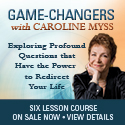
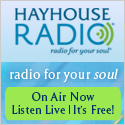





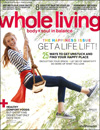
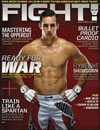
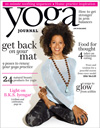
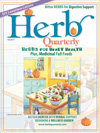
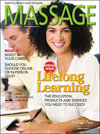
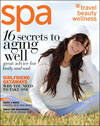
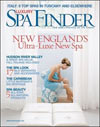
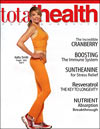






0 Comments:
Post a Comment
<< Home